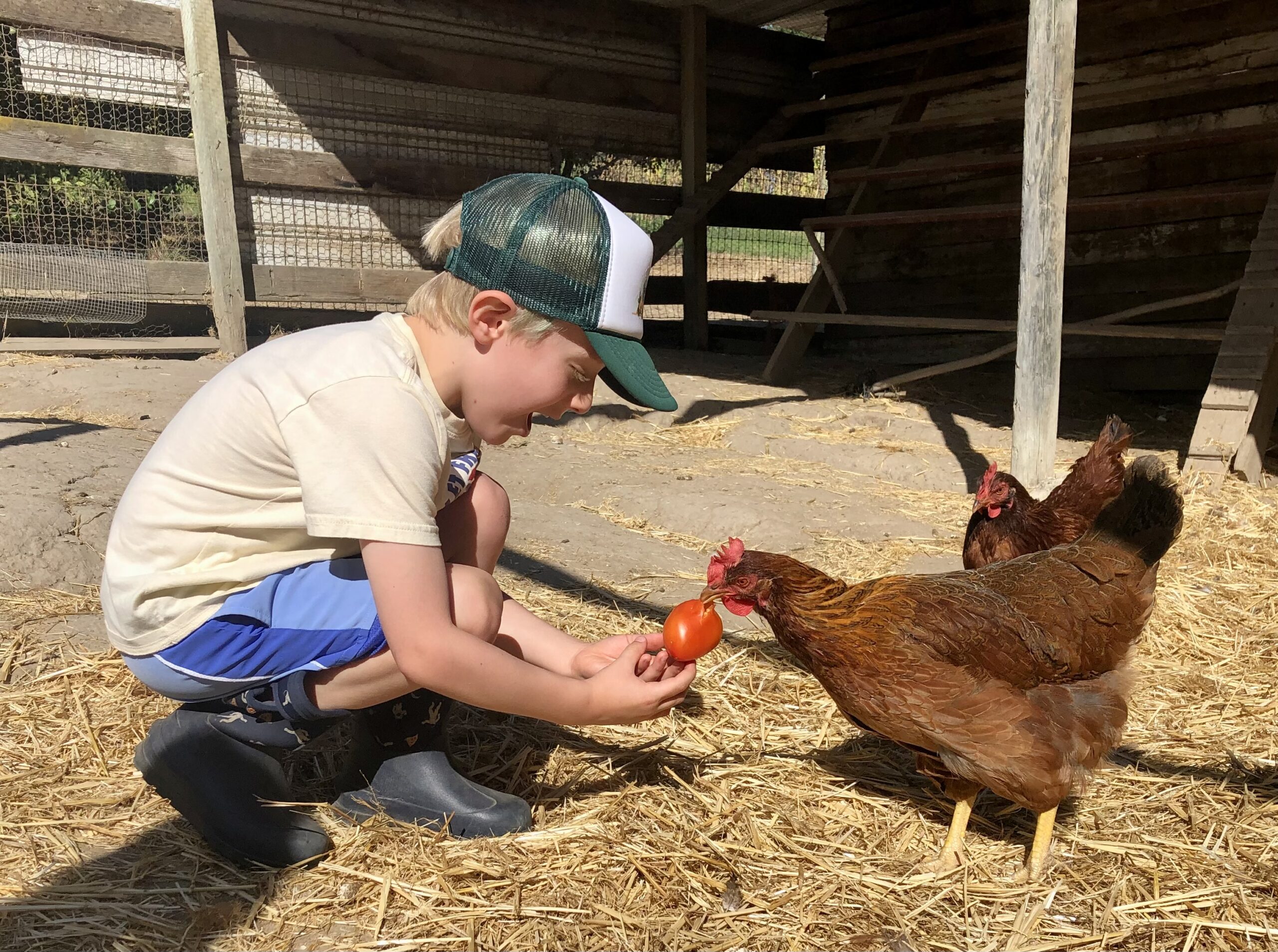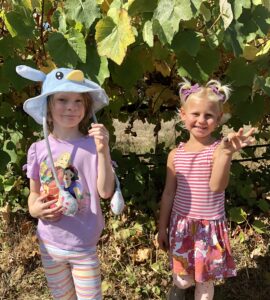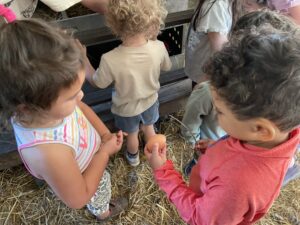 Mount Madonna School (MMS) preschool and kindergarten students recently visited Live Earth Farm in Watsonville, providing an opportunity for hands-on farm learning and increasing students’ understanding of where food comes from.
Mount Madonna School (MMS) preschool and kindergarten students recently visited Live Earth Farm in Watsonville, providing an opportunity for hands-on farm learning and increasing students’ understanding of where food comes from.
“During our visit to the farm, the children experienced firsthand a lot of the plant information they have been learning about in the classroom, such as the way some food we eat, such as carrots and potatoes, grows beneath the soil, while some, like lettuce and broccoli, grows above ground,” said Preschool Director Kami Pacheco.
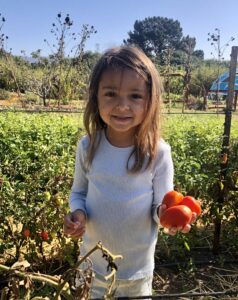 In preparation for the field trip, kindergarten students learned about different kinds of farms and pondered where food comes from. Preschool students studied parts of plants and their functions including leaves, roots, flowers and seeds and seed pods.
In preparation for the field trip, kindergarten students learned about different kinds of farms and pondered where food comes from. Preschool students studied parts of plants and their functions including leaves, roots, flowers and seeds and seed pods.
“We love our annual field trip to the farm! In the classroom we read stories about where food comes from, study the life cycle of plants and animals and grow sugar snap peas, carrots and wheat in our little garden,” commented kindergarten teacher Hema Walker.
“However, there is nothing like exploring a working organic farm to really experience how food grows and how much work it takes to get the food that we eat to our table. Our visit to the farm helps us to appreciate the hard work of farmers who grow our food and helps to instill gratitude for the Earth who is the source of all that we eat.”
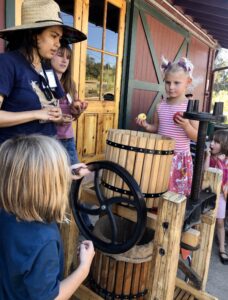 “In the preschool garden students have been growing edible herbs and vegetables organically and collecting snack and lunchtime leftovers for compost,” said preschool teacher Karla Phillips. “We have been studying insects and talking about all sorts of pollinators. On the farm we observed similar plants grown organically, more developed composting, and more diverse pollinators. It showed us the power of what we are doing on a larger scale!”
“In the preschool garden students have been growing edible herbs and vegetables organically and collecting snack and lunchtime leftovers for compost,” said preschool teacher Karla Phillips. “We have been studying insects and talking about all sorts of pollinators. On the farm we observed similar plants grown organically, more developed composting, and more diverse pollinators. It showed us the power of what we are doing on a larger scale!”
“I learned that food needs water and sun and soil to grow,” said kindergartener Kal Dirlikov. “Bees and butterflies help food to grow because they pollinate flowers. We need to thank the farmers for our food, and the soil.
“At the farm I tasted sugar snap peas,” shared a classmate. “They tasted like sugar! I also tasted rattlesnake beans. I liked them.”
“My favorite part of the field trip was the chickens because I got to pet them, even the eggs,” said shared kindergartner Skai Catterall-Pendleton.
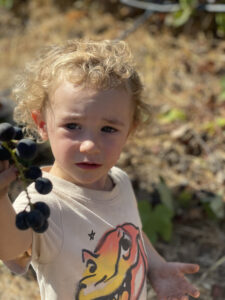 Walker connects farm adventure with the kindergarten curriculum in several ways: reading aloud stories about farms and where food comes from; having students reflect on their farm experience in drawing journals, and creating original life cycle and identification books, and by providing students with an opportunity to care for their own class garden.
Walker connects farm adventure with the kindergarten curriculum in several ways: reading aloud stories about farms and where food comes from; having students reflect on their farm experience in drawing journals, and creating original life cycle and identification books, and by providing students with an opportunity to care for their own class garden.
“They come to realize that everything that they buy in the grocery store, even ice cream, cakes and sandwiches, grew on a farm somewhere,” said Walker.
At the farm students were able to watch as apples were pressed into cider and cups of the sweet beverage were handed out for sampling.
“The apples got smooshed into apple juice,” remarked one appreciative child. “It was good!

